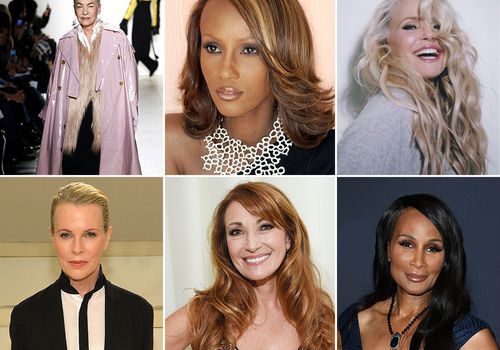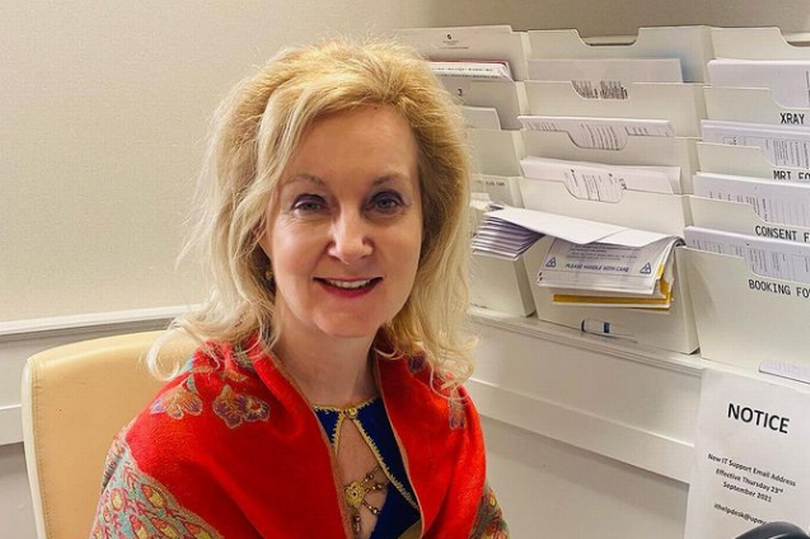Common Health Conditions such as dementia, osteoporosis, arthritis and other conditions occur regualrly in older women.
Dr Mary Ryan on how women can avoid common health conditions as we get older
You can take steps to reduce your chances of developing common health conditions such as dementia, osteoporosis, arthritis and other conditions that occur in older women.
Modern medicine is keeping us alive longer than ever before, but as well as talking about lifespan we need to look at healthspan. Research tells us that older women are more likely to have chronic health conditions than older men. A lot of daughters caring for their elderly mothers wonder how they can avoid the same health issues in later years. That’s the question we put to Dr Mary Ryan, this month’s guest health editor, who looks at incontinence, prolapsed wombs, heart and brain health, osteoporosis and depression.
Women are nurturers who take the bulk of the responsibility for rearing their children. In general, they work hard even when they are already stretched to their limits. Pregnancy and childbirth also take a huge toll on their bodies. Many of my patients, who are mothers and working full-time outside of the home, told me that during Covid most of the responsibility for homeschooling fell to them. Plus they always seem to take ownership of any family issues. But women need to realise that parenting has to be divided 50/50 when both partners are working.
Women who are doing everything at home and working a job outside the home as well don’t have time to nourish or care for themselves properly and, as a result, their hormone health isn’t good. The hormone control centre is a powerhouse that drives the immune system, muscles, sleep and good gut health. If a woman is working extra hard with huge expectations on her, she will suffer burnout and hormone imbalance, and that will have short-term and long term health implications.
Pregnancy and Childbirth
Women play an essential role in society and sacrifice a lot when going through pregnancy and childbirth, but they are not respected or credited enough for it. I come across young women who are having very long labours and feel that there is not enough intervention at an earlier stage in the labour. I also come across women who have had episiotomies with no anesthetic. A lot of these women are upset that they have not been told their baby is very large and a planned Cesarean section has not been discussed, to avoid unnecessary vaginal tears and problems that will cause them suffering in later life.
I recall a story from a patient who had a 10 pound baby as her first child. The labour was 18 hours long and resulted in a serious vaginal tear, as she had a small pelvis. Her husband, who was a farmer, was traumatised as he claimed his animals would never be forced to endure such torture.
While our doctors and midwives are excellent, maternity units are understaffed and it is time for women to get more support in childbirth. I believe this is an area that needs major investment and we need to show more respect and support to these amazing women who are giving birth to our next generation.
The average woman goes through a 10 to 12-hour labour, in some cases it’s 16 hours, so to be expected to care for your baby afterwards without help is barbaric. In the vast majority of cases, postnatal depression is down to the woman being tired, which affects her hormones. This can spiral out of control if the exhaustion continues at home.
Sharing is caring
We have empowered women to take the taboo out of menopause by talking openly about it. We now need to do the same with their experiences around childbirth. A lot of women are made to feel they should be grateful for five, and monitor their blood pressure. It’s also important to keep your weight in check, to eat a heart-healthy diet, cut out smoking and keep alcohol within safe limits.
Osteoporosis
A lot of women get fractures in their vertebrae, wrists and hips in their late 60s and 70s; hip fractures in particular carry a high risk of mortality. Women are still not aware of how important it is after menopause to get regular Dexa scans to measure their bone density. TV presenter Mary Kennedy is an ambassador for the Irish Osteoporosis Society and she is helping spread awareness but we need to talk about it more because it’s a huge contributor to all-cause mortality (death from any cause.) It can also result in terrible back pain and loss of height and can affect a person’s self-esteem. It’s recommended to have a Dexa scan every two to three years post-menopause. In a many cases, treatment simply involves a course of vitamin D and a diet review.
Osteoarthritis
Osteoarthritis is a degenerative joint disease that results in the cartilage that cushions the ends of bones in your joints gradually deteriorating. Symptoms include joint pain and stiffness and it most commonly affects the hands, knees, hips and spine Causes include genetics, older age, obesity, joint injuries, repeated stress on the joint, diabetes and haemochromatosis (where there is excess iron in the blood). It is more common in women than men, although the cause for this is unknown.
Depression
Depression in women is overdiagnosed because in a lot of cases it is reactive, a hormone imbalance rather than clinical. This is especially the case post-menopause and that can be sorted very easily by balancing the hormones with lifestyle changes. Women are now living into their 90s and I always say to my patients if Queen Elizabeth can live healthily to 96, then so can you. Celia Holman Lee, who is proud to say she is in her 70s, is a super role model for older women. It’s wonderful to see women in their 70s, 80s and older feeling empowered and looking after themselves in terms of their health and their appearance because it all helps. Women can live healthily and happily 50 years after menopause if they take care of themselves. Society has to play its part too, of course: women and men should be treated equally in terms of aging. Even in films it’s totally acceptable for an actor in his 50s or 60s to be playing opposite a woman in her 20s or 30s. Jane Seymour challenged this, as did a few other actors, but while the situation is improving, the current James Bond is still in his 50s and his leading lady is in her 30s. A lot of my elderly patients told me that they felt like a burden to society at the height of the pandemic. They were told to stay at home and many felt very lonely and victimised. Some are angry, and their children are angry too, especially those whose parents got dementia because of the loss of human contact. Old people are not projected as a valuable and wise asset in our society and they should be.
Dementia and Alzheimer’s
There are stats that say women outnumber men in terms of dementia and Alzheimer’s, and there are studies that indicate a lack of oestrogen can cause dementia, but we must acknowledge that women live longer than men and that would skew those reports. Cerebral atrophy, which is where the brain shrinks, is one of the main causes of dementia and can be reduced by lifestyle choices such as weight management. Abdominal obesity causes plaque in the arteries and that in turn can affect your brain. This is why health maintenance is vital – check your blood pressure, your weight and cholesterol levels, exercise regularly to manage stress, stop smoking and limit alcohol. Women need to think ahead and start looking after their health to avoid brain issues later on. Women need to be more empowered about their self-worth at all ages. It is important to look after your health at an early age and not leave it until you are elderly, when the damage will have been done. Prevention is key.
Check out Dr Mary Ryan’s Empowering Women podcast series on Spotify HERE
For more news stories go HERE
Common Health Conditions Common Health Conditions Common Health Conditions
Conditions Common Health Conditions

